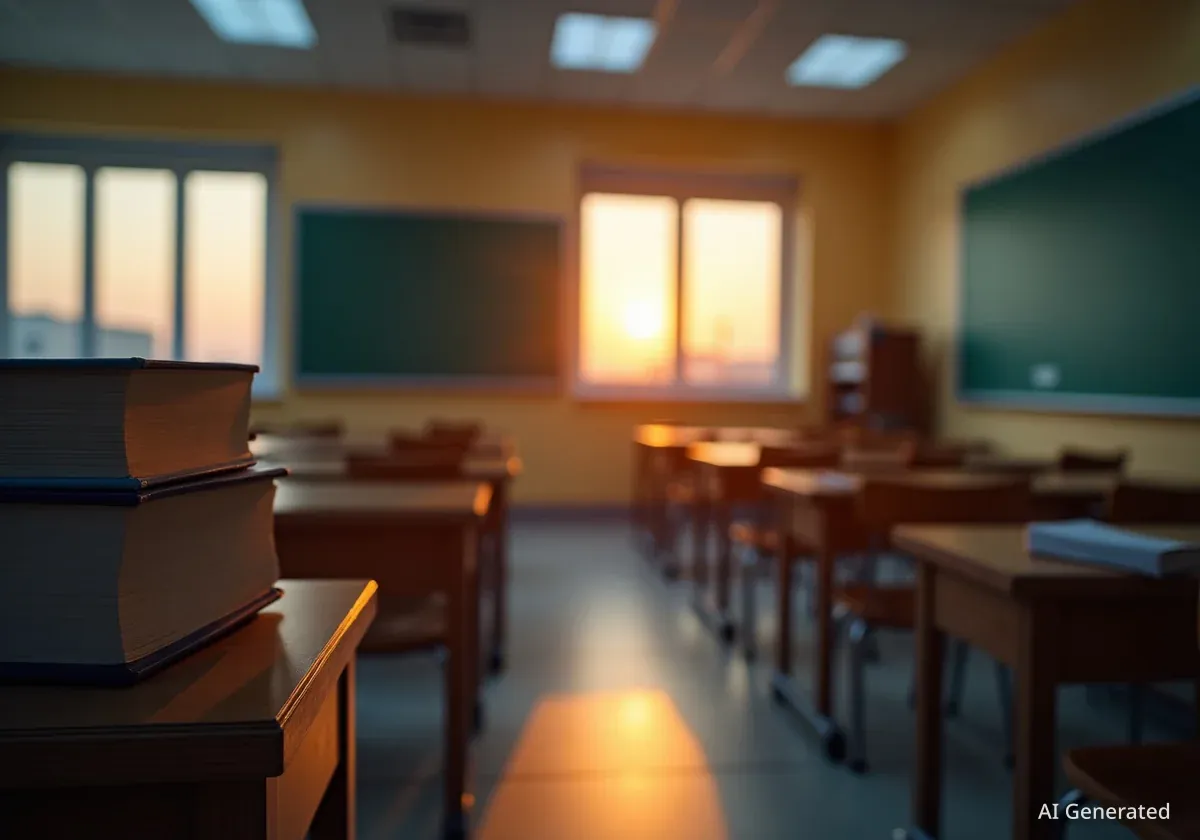A Wisconsin state representative is preparing new legislation aimed at improving student safety, a direct response to a news report on how the state's education department manages investigations into educator misconduct. The proposed changes target a loophole that allows teachers to surrender their licenses to halt inquiries into serious allegations.
Key Takeaways
- State Rep. Amanda Nedweski is drafting a bill to prevent educators from surrendering their licenses to avoid sexual misconduct investigations.
- The action follows a report that found Wisconsin's Department of Public Instruction (DPI) investigated over 200 educators for such allegations between 2018 and 2023.
- An informational hearing on the topic is scheduled for October 23, with State Superintendent Jill Underly invited to testify.
- Additional proposed bills would mandate clear staff-student boundary policies and create a criminal penalty for grooming children.
Legislative Action Follows Media Investigation
State Representative Amanda Nedweski, a Republican from Pleasant Prairie, announced plans to introduce legislation after a Cap Times report highlighted systemic issues in the handling of teacher misconduct cases. The investigation revealed that the Wisconsin Department of Public Instruction (DPI) had looked into more than 200 cases involving teachers, aides, and administrators accused of sexual misconduct or grooming behaviors over a five-year period.
In a statement, Nedweski expressed concern over the findings. “The recent revelations by the Capital Times paint an alarming picture of what’s happening in our schools,” she said. “Every parent in Wisconsin deserves to believe that when they send their child to school, that child is safe.”
By the Numbers
From 2018 to 2023, the Wisconsin Department of Public Instruction investigated more than 200 educators for allegations related to sexual misconduct or grooming behaviors toward students, information that was not previously public.
Closing an Investigative Loophole
A primary focus of the new legislation is a practice that allows licensed educators under investigation to voluntarily surrender their teaching credentials. This action effectively stops the DPI's probe before a final determination is made, preventing the full details of the allegations from becoming public record.
Nedweski's main bill would prohibit this practice for educators accused of sexual misconduct. “We clearly have a loophole in the process here where teachers are sort of allowed to resign their licenses, and the reasons why are not published or available to the public,” Nedweski explained.
She pointed out a discrepancy in transparency between professions. “Other state licensed professions, their disciplinary histories are published online. And it seems to be that this exemption for educators is not transparent,” she added.
Additional Measures for Student Protection
Beyond addressing the license surrender issue, Rep. Nedweski is working on two other related bills to enhance student safety protocols. These proposals were in development prior to the recent news report but have gained new urgency.
The additional legislative efforts include:
- Boundary Policies: One bill would require all school districts to adopt and enforce clear policies that define appropriate communication and boundaries between school staff and students.
- Grooming Penalty: Another bill aims to create a specific criminal penalty for the act of grooming children. According to the Rape, Abuse & Incest National Network (RAINN), grooming involves a series of boundary-crossing behaviors designed to build a child's trust for the purpose of sexual exploitation.
State Leaders React and Schedule Hearing
The report has prompted responses from other state leaders. State Assembly Speaker Robin Vos, a Republican from Rochester, called the findings shocking and alarming. He criticized the DPI for what he described as a lack of transparency.
“Instead of falsely blaming the Legislature for underfunding the department and taking no responsibility in this matter, DPI and Dr. Underly should focus on stopping this revolving door of sexual abusers from entering and remaining in our schools,” Vos stated.
In response to the report, the state Assembly’s Committee on Government Operations, Accountability and Transparency has scheduled an informational hearing. The hearing, set for October 23, will focus on sexual misconduct by school staff. The committee has invited State Superintendent Jill Underly, who oversees the DPI, to provide testimony. Local law enforcement officials with experience in grooming cases are also expected to participate.
Context on Department Resources
Prior to the report's publication, a spokesperson for the Department of Public Instruction, Chris Bucher, stated that consistent underfunding by the state legislature has left the agency with limited resources for conducting thorough license misconduct investigations. State Superintendent Underly declined an interview request for the original story.
Calls for Greater Transparency
Advocates for student safety argue that the current system lacks the transparency needed to protect children effectively. Unlike the DPI, the Wisconsin Department of Safety and Professional Services maintains public online records of misconduct for a wide range of professions, including doctors, accountants, and manicurists.
This difference in public access makes it more difficult for parents and school districts to be aware of an educator's full history. Critics suggest this lack of public disclosure can make it easier for individuals with a history of misconduct to move between districts or states without detection, potentially putting more students at risk.
The upcoming legislative session and the scheduled hearing will place further scrutiny on the DPI's processes and the state's legal framework for protecting students from educator misconduct.





